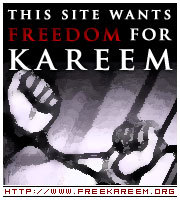Afghanistan: Time for India to Revamp Ties With the Northern Alliance
Of late the Afghan government headed by President Hamid Karzai has come under increased pressure to negotiate with the Taliban. Anti-Taliban elements also have established a new political group, indicating another move toward reintegrating segments of the Taliban into the Afghan government. Kabul's move to engage the pragmatists in the Pashtun jihadist movement has had an unsettling effect, both within the ranks of the Taliban and among their Tajik-led rivals.
Stratfor predicts that it is unlikely that President Hamid Karzai will be able to balance these two forces, and his own government could be overwhelmed by a new north-south fault line. This means it is time for India to revamp old ties with the Northern Alliance.
Stratfor predicts that it is unlikely that President Hamid Karzai will be able to balance these two forces, and his own government could be overwhelmed by a new north-south fault line. This means it is time for India to revamp old ties with the Northern Alliance.
Afghan President Hamid Karzai said April 6 that he and other government officials have been in contact with Taliban representatives for some time. This announcement -- a bow to increasing pressure to work with the jihadists -- comes a day after Mullah Abdul Salam Zaeef, former ambassador of the ousted Taliban regime, criticized Kabul's negotiations with moderate Taliban, calling the talks a "conspiracy" designed to sow dissent within the ranks of the Pashtun jihadist movement. Meanwhile, former Afghan President Burhanuddin Rabbani -- a Tajik Islamist -- announced April 3 the launch of a new political coalition called the United National Front. In addition to former communists, this group includes former mujahideen who participated in the 1979-89 fight against Soviet forces, the 1992-96 intra-Islamist civil war and the 1996-2001 struggle against the Taliban regime. Some of the more prominent figures in this new group are former Defense Minister Mohammad Qasim Fahim, Parliament Speaker Younis Qanooni and Prince Mustafa Zahir, the grandson of ailing former King Mohammad Zahir Shah. One of the group's key goals is to amend the 2003 constitution to allow for proportional representation in parliament, and to create a prime minister position. These Tajik-led, mostly northern forces have watched the resurgence of the Taliban over the last few years, as well as the government's intense struggle to contain them. They understand that Kabul's renewed efforts to rein in the insurgency via negotiations eventually will lead to the empowerment of the majority Pashtun community, since the Taliban constitute the only potent political force among the Pashtuns. Since the fall of the Taliban regime, the Tajiks, Uzbeks, Hazaras and other opponents of the Pashtun jihadists have been content with Karzai's weakness -- and, by extension, the weakness of the Pashtun community. This has allowed them to consolidate their hold in their respective regions and gain a share of the national pie. But now that weakness is becoming a liability for these northerners, given that an enfeebled central government cannot act as a secure buffer between them and the Taliban in the country's south. Hence, they are moving to galvanize their ranks and erect legal and constitutional barriers to counter a revived Pashtun presence in the south and in Kabul. These old Taliban enemies are not the only ones concerned about Kabul's moves to re-engage Taliban fighters. The Taliban themselves also are worried that recent offers of talks and a share in the government will cause fissures in their ranks, which already are divided. Moreover, Karzai is not the only one pushing for negotiations; this discussion is taking place even within government circles in NATO member states such as the United Kingdom, Germany, Canada and others. There increasingly is evidence that the Taliban have realized that they cannot expect to dominate Afghanistan again like they did during 1996-2001, when they extended their writ almost to the country's northern border with Tajikistan. Despite former Taliban ambassador Zaeef's April 5 criticism of the government's actions, he also said that the problem is not Karzai or his government. "The problem is with foreigners," he added, "and [the Taliban] are fighting them and [calling] their war a freedom fight." This statement represents a slow movement on the part of the Taliban away from the rhetoric that Karzai's regime is illegitimate and must be defeated. In other words, we are seeing the re-creation of Afghanistan's north-south divide. Even more problematic from a stability point of view, the Karzai regime likely will not be able to balance these two forces, and the government could be the first casualty of a new war between the Pashtun majority and the Tajik-led minorities.[Stratfor] |

No comments:
Post a Comment